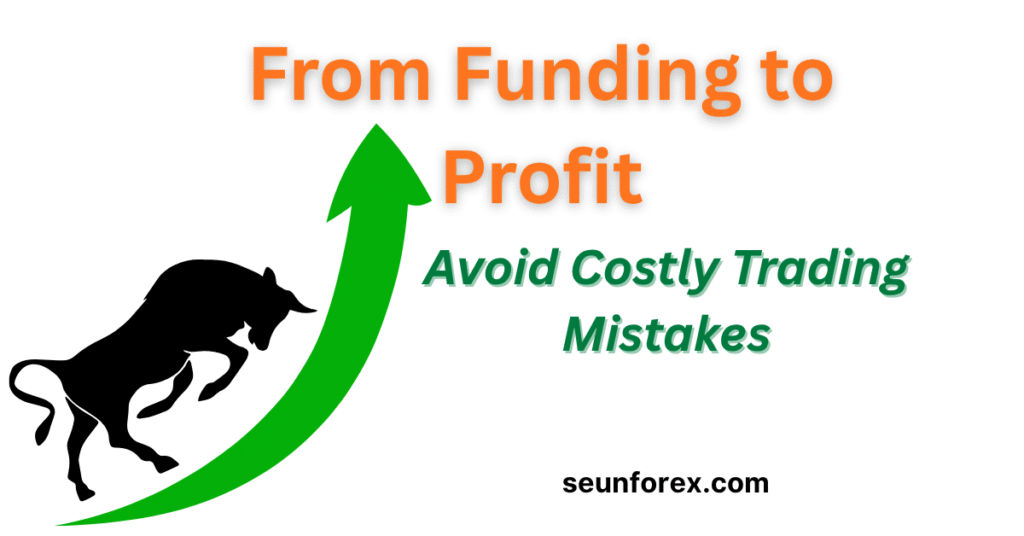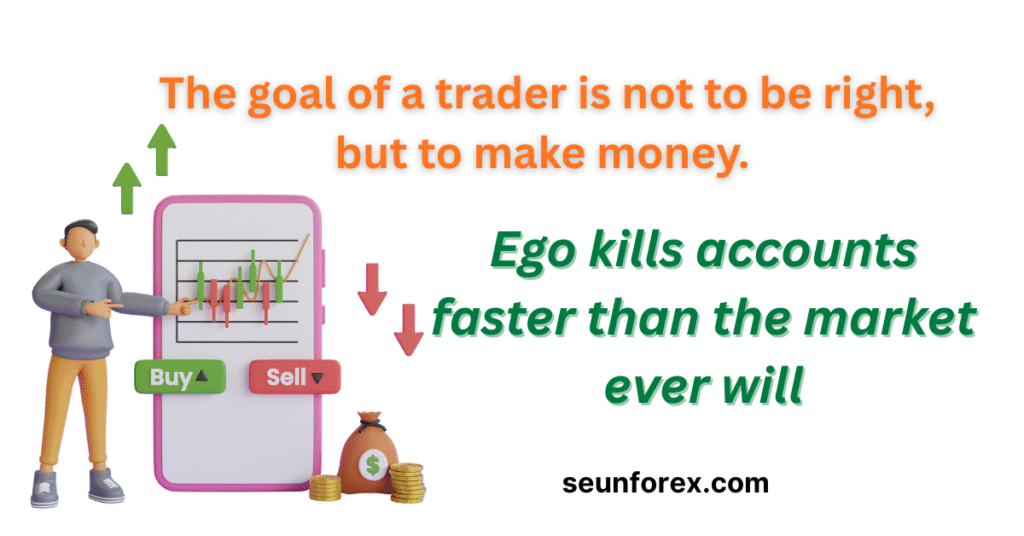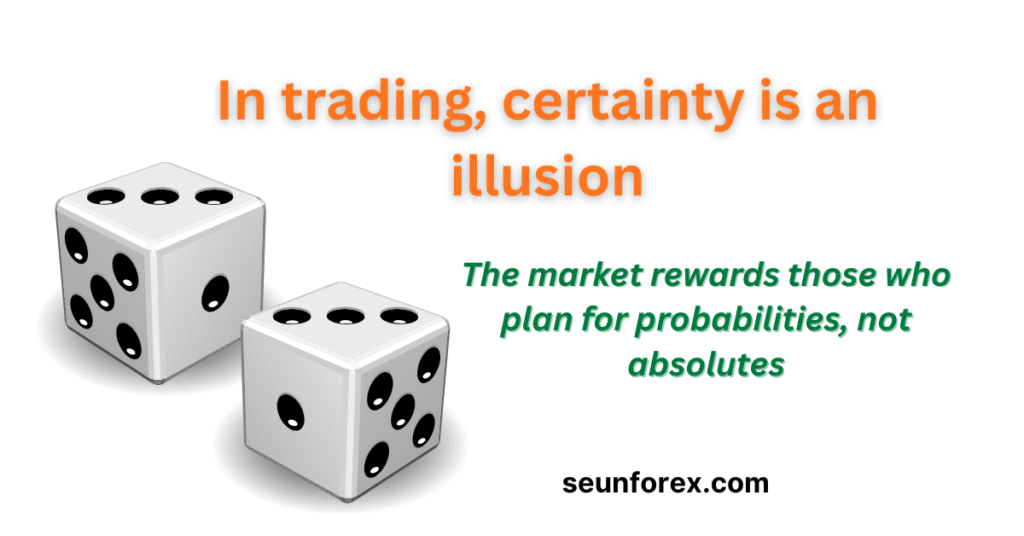
🧠 From Logic to Lethal: How Funded Traders Rewired Their Minds to Win
The #1 Trading Edge Is Invisible and Lives In Your Head
You’ve done it. You passed the challenge. You got funded. And now… the pressure hits. Suddenly, your demo-honed logic feels shaky. Every pullback looks like disaster. Every spike feels personal.
The brutal truth? Markets don’t reward funding. They reward discipline. And the biggest transformation professional traders make after getting real money isn’t in their indicators, their strategy, or even their capital—it’s in their mindset.
This isn’t about “thinking positive” or “manifesting green candles.” It’s about rewiring years of emotional conditioning—habits that work in life, but destroy your trading account.
Let’s break down the core mindset shifts that separate funded traders who flame out from funded traders who thrive, and practical fixes you can apply today.
🧠 Active vs. Reactive Thinking
Why “being proactive” might be your biggest liability
In school and work, we’re taught to take initiative, push forward, make things happen. But in trading, especially after funding, over-activity kills.
Newly funded traders often feel the need to “prove themselves,” over-trade, or hunt setups that aren’t there. Professional traders? They wait. They observe. They respond to probabilities, not impulses.
“The market doesn’t pay you to be active. It pays you to be patient.” — Mark Minervini
Fix for Funded Traders:
- Set a daily max trade count: Limit yourself to high-probability setups. Overtrading after funding is a common account killer.
- Log pre-trade probabilities: Before clicking buy or sell, write down why the trade meets your criteria. If it’s not a yes on paper, don’t trade.
- Implement “observation-only” sessions: Even funded traders benefit from days when no trades are taken, letting the market teach, not tempt, them.
🧍♂️ My Logic vs. Crowd Logic
Markets aren’t a debate—they’re an auction
After funding, traders often assume their analysis must dominate the market. They get defensive when trades go against them.
The market doesn’t care about your Fibonacci level, your trendline, or your logic. Prices are driven by crowd psychology, not rationality.
- Retail mindset: “I’m right, why isn’t the market listening?”
- Professional mindset: “The market is neither right nor wrong; it’s just moving. My job is to align, not argue.”
Fix for Funded Traders:
- Shift from defending trades to aligning with context: Stop proving your analysis. Let market behavior dictate your actions.
- Use micro-confirmations: Before entering, identify the specific behavior that signals alignment (e.g., trend continuation candle, volume surge).
- Detach ego from trades: Your analysis is not your identity. Losing trades are data, not judgment.
🔭 Assumption vs. Speculation
Speculate, don’t predict
Latin gives us a clue: “speculari” means to observe. Tom Basso explained it perfectly:
“I stand on a hill and watch two armies battle. When one starts to win, I join them.”
Post-funding, many traders try to predict, to be right. Professional traders don’t predict—they define conditions, wait for confirmation, and engage only when the market proves something.
Fix for Funded Traders:
- Define trade conditions in advance: Include entry, exit, stop, and contingency plans.
- Trade the confirmation, not the assumption: Only pull the trigger when your conditions are met.
- Review failed assumptions weekly: Analyze trades where you assumed instead of confirmed. Identify patterns and fix them.
🥊 Ego vs. Humility

You’re not here to win every battle, just the war
The school mentality of “being the best” can destroy funded traders. After funding, ego-driven mistakes often appear as:
- Holding losers too long to prove a point
- Revenge trading after a loss
- Overleveraging to “show skill”
Professional traders:
- Don’t need to be right
- Don’t marry trades
- Cut losses without hesitation
“If you’re not willing to take a small loss, sooner or later you’ll take the mother of all losses.” — Ed Seykota
Fix for Funded Traders:
- Stop loss obedience: Use pre-set stop-loss orders without compromise.
- Track emotional triggers: Keep a log of when and why ego influenced a trade.
- Adopt a humility mantra: Repeat before trading: “I follow the market, not my ego.”
🎯 Risk vs. Calculated Risk
Every trade is a bet. You’re not a prophet, you’re a probability manager
Post-funding, traders often focus on potential profits instead of risk. Professional traders invert the question:
- Retail: “How much can I make?”
- Pro: “How much can I lose?”
Math reality:
- 7 trades = $1 small loss each
- 3 trades = $5 gain each
- Net = +$8
That’s not luck—it’s mathematical asymmetry, the hallmark of disciplined trading.
Fix for Funded Traders:
- Predefine risk per trade: Never risk more than a fixed % of your account.
- Use risk/reward ratio consistently: Favor setups with high R:R to small, defined risk.
- Audit your trades monthly: Ensure that risk management rules are followed post-funding.
🧮 Goals vs. Probabilities
Forget monthly targets. Focus on good bets
After funding, traders often chase arbitrary goals: $500/day, 10% monthly. Pros chase favorable setups.
“You don’t trade because you’re bored. You trade because conditions demand it.” — Marty Schwartz
Fix for Funded Traders:
- Focus on setups, not outcomes: Treat daily profit as a byproduct of discipline.
- Use statistical journaling: Track win/loss ratios and edge rather than absolute profit.
- Recalibrate expectations: Funding changes account size, not market odds. Don’t force trades.
🥶 Emotion vs. Execution
Hope, fear, anger—leave them at the door
Emotions are the silent account killers. Hope is not a strategy. Revenge is not a plan. Professional traders act on rules, not feelings.
“When in doubt, get out.” — Trader’s adage
Fix for Funded Traders:
- Use a decision checklist: Only execute trades that meet objective criteria.
- Schedule “emotion reviews”: Reflect weekly on emotional trades to understand triggers.
- Automate discipline where possible: Alerts, stop orders, and pre-set exits remove human error.
💰 One Big Hit vs. Many Small Edges
The myth of the home run
Newly funded traders often try to “go big” to prove they belong. Reality: big gains come from a series of disciplined trades, not one lucky swing.
Fix for Funded Traders:
- Stack small edges: Focus on consistent profit rather than single windfalls.
- Set trade size proportional to conviction: Only increase size when the probability is in your favor.
- Detach from greed: Let the market give what it will; don’t chase more.
📉 School Logic vs. Market Logic

Engineers, beware
In engineering: A + B = C.
In trading: A + B = maybe C… or Z… or an explosion.
Markets aren’t linear. They’re probabilistic. Professional traders embrace uncertainty.
Fix for Funded Traders:
- Think in ranges, not absolutes: Avoid assuming certainty.
- Use probabilistic planning: Define best, worst, and most likely outcomes.
- Build flexible rules: Adjust without abandoning your system.
✅ Pro Trader Mindset Checklist
Ask yourself:
- 🔲 Am I reacting to the market or imposing my will?
- 🔲 Do I accept small losses without ego?
- 🔲 Do I think in probabilities, not certainties?
- 🔲 Am I emotionally neutral, win or lose?
- 🔲 Do I follow a repeatable system with discipline?
- 🔲 Do I have the patience to wait for great setups?
Failing any of these areas is where most funded traders blow accounts.
Trading Is a Mirror
The market isn’t your enemy—it’s your mirror.
It reflects your discipline, impulses, and beliefs about money. That’s why trading mastery post-funding isn’t about finding the perfect strategy. It’s about mastering yourself. Every mistake you make isn’t just a loss—it’s feedback on your mindset. Every streak of wins isn’t luck—it’s reinforcement of disciplined behavior.
“In the long run, you don’t trade the market. You trade your beliefs about the market.” — Van K. Tharp
Before risking real money, adjust the instrument between your ears. Cold blood. Clear rules. Unshakable mindset. That’s the true edge.
If you want to understand how hidden costs and broker structure can subtly sabotage even the most disciplined traders, check out our deep dive on Zero Commission Brokers and Hidden Costs Explained. It’s a must-read for funded traders who want to protect their edge from invisible market traps.
For a comprehensive understanding of the psychological factors that make or break traders, Investopedia’s article on Trading Psychology is invaluable. It explains the cognitive biases, emotional pitfalls, and decision-making traps that are silently draining traders’ accounts—and offers actionable strategies to overcome them.
By exploring both resources, you’ll see the market from two critical angles: the external environment (broker costs, market friction) and the internal environment (your mindset, biases, emotional triggers). Master both, and you don’t just trade—you survive and thrive.
✅ Key Post-Funding Fixes Recap:
- Trade reactively, not impulsively.
- Align with market context, not your analysis ego.
- Speculate, don’t predict. Define conditions first.
- Maintain humility; cut losers without drama.
- Focus on risk-first, probability-based management.
- Chase setups, not arbitrary profit goals.
- Leave emotions at the door.
- Stack small edges, don’t hunt one big hit.
- Accept market uncertainty, think probabilistically.
- Continuously audit your mindset and execution.